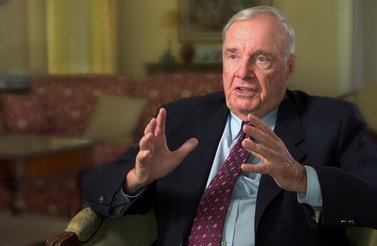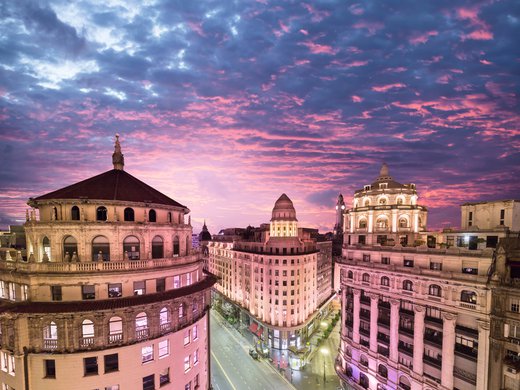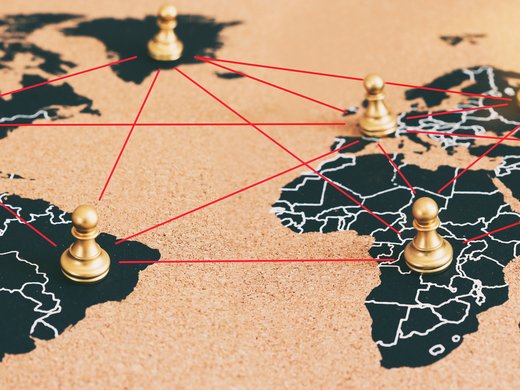On a September afternoon in 1955, Paul Martin, Sr., the head of Canada’s delegation to the United Nations, stood up in the General Assembly Hall before various delegates of the body’s 60 member states, about to make a passionate appeal.
Ten years after the United Nations’ founding, membership had grown by only a handful from the original 51 countries. Some nations were of the opinion that expansion would complicate things — that the club should remain a small one. But Martin felt strongly that the United Nations wouldn’t be able to make a meaningful attempt at solving the world’s major problems unless it was truly representative.
“It is the view of the Government of Canada that the continued exclusion from the United Nations of so many nations of the world is a great handicap,” he told the hall, calling for “as quick and as broad an advance towards universality of membership as we can possibly bring about.”
Less than three months later, thanks largely to Martin’s efforts, 16 new countries were admitted to the United Nations General Assembly. Paul Jr., Martin’s teenage son — and future Canadian prime minister — was sitting with the Canadian delegation as this happened, thrilled to be witnessing country after country thanking his father.
“I must say that I was tremendously proud of my father, I was tremendously proud of my country,” Martin recalls. “I remember that night talking to my dad — he said, ‘you know, Canada can play a role here, and you just remember that.’ I’ve never forgotten it.”

A little over four decades later, as Canada’s minister of finance, Martin, with his US counterpart, Lawrence Summers, would be the driving force behind the establishment of a completely new multilateral body: the Group of Twenty (G20).
Today, its members — Argentina, Australia, Brazil, Canada, China, the European Union, France, Germany, India, Indonesia, Italy, Japan, Mexico, Russia, Saudi Arabia, South Africa, South Korea, Turkey, the United Kingdom and the United States — represent about two-thirds of the world’s population and account for 85 percent of global GDP. From November 30 to December 1, they will meet in Argentina for the annual G20 Leaders’ Summit, focused this year on the future of work, infrastructure for development and a sustainable food future.
“Multilateral forums like the G20 not only lay the foundation for stable, rational and fair relations between countries — they inspire a world community built on higher aspirations and shared values,” Canada’s current prime minister, Justin Trudeau, said in a written interview.
“Despite its relatively short history, the G20 has joined other international organizations, including the G7 [Group of Seven], the WTO [World Trade Organization], and the UN, as a pillar of the rules-based international order. What sets the G20 apart from other organizations — its origins as a rapid-response, crisis-management group, and unique size and flexible structure — makes it particularly well-suited to take on big issues that we all face in our rapidly changing world.”
That is indeed what Martin intended for the group — that it take the lead in shoring up the international order established after World War II.
But today, as the G20 meets in the shadow of rising populist sentiment, an unpredictable US president, tariff wars and technological disruption, Martin is worried.
The way he sees it, the very foundations of his lifelong cri de coeur — that global problems require global solutions — are in jeopardy. “The G7 and the G20 were created when the world recognized globalization as a fact of life and essentially said, what we’ve got to do is to make it work for everyone,” Martin said.
Since the 2008 financial crisis and subsequent recession, he says, “that preparedness to work together has been under attack…All of a sudden, globalization became not something to take advantage of but something to blame for inequality and job loss.”
For most of the first decade following its establishment in 1999, the G20 met at the level of finance ministers and central bank governors. Faced with the far-reaching global effects of the financial crisis, the G20 held its first summit at the leaders’ level 10 years ago this November.
As the summit enters its second decade, has its past performance lived up to what Martin calls its “ultimate justification” — making globalization work for everyone? And what role might it be able to play in addressing the world’s most pressing challenges going forward?
Forged in Crisis
I spent some time with Martin this year, first in Argentina and a few months later at his family’s farm in Quebec’s Eastern Townships. The former prime minister was warm, courteous and thoughtful, a man who takes his responsibilities with great seriousness but himself less so.
He is also indefatigable, despite turning 80 this summer. In April, he spent three marathon days in Buenos Aires meeting with G20 officials, think tank representatives, university students and Canadian embassy staff, all keen to hear his thoughts on what the focus of the upcoming summit should be.
During that trip, Martin sat down with me twice, providing hours’ worth of recollection and analysis. Earlier, in a meeting with Argentinian Treasury officials, Martin had been delighted to learn the Spanish word caballero, which can mean “knight” or “gentleman,” and when I start by asking if he’s comfortable with me referring to him as the G20’s creator or founder, he demurs. “How about its caballero?”
Nonetheless, the reality, as acknowledged by countless officials on the ground in Argentina, is that Martin spearheaded its creation. His tie loosened, one foot resting on the edge of his hotel suite’s coffee table, he shared the story of how the G20 came together.
When Martin became Canada’s finance minister in 1993, the country’s record high deficit was one of the largest among the G7 nations. As he started to attend G7 finance ministers’ meetings, it struck him that while the group was meant to represent the most powerful economies in the world, crucial voices were missing from the discussion: countries such as China and India were not there, nor were representatives from the emerging economies of South America, Asia or Africa.
Martin would soon feel the full weight of the interdependence he knew underpinned the global economy. In December 1994, the Mexican government’s sudden devaluation of the peso led to a major financial crisis, the effects of which were felt around the world, including in Canada. “When Mexico got into difficulty, all countries with bad balance sheets saw their interest rates go up,” Martin recalled. “Canada’s started to go up, obviously having an effect on my ability to deal with the deficit.”

“I said, this doesn’t make any sense…China and India are not here, and in fact the great economies regionally are not at the table. Don’t you think that we should be doing something about it?”
He raised the issue with his G7 counterparts: “I said, this doesn’t make any sense…China and India are not here, and in fact the great economies regionally are not at the table. Don’t you think that we should be doing something about it — don’t you think that there should be a parallel ‘G’ created?”
But, given that a number of G7 countries were not keen to give up the exclusive access to the United States that the group afforded them, Martin “got nowhere with that.”
“I was a brand-new finance minister from a country with a relatively weak balance sheet — that’s what happens to you.”
Less than three years later, in July 1997, a move by the Thai government to float the baht sparked the decade’s second major financial crisis. Southeast Asian economies were soon adversely affected, and over the next couple of years, Russia defaulted on its debts, Brazil saw its largest currency devaluation ever and international stock markets hit record lows.
The G7’s messaging to the Asian countries that were involved was “essentially, clean up your act,” Martin said. At an April 1999 meeting in Washington, DC, Martin and his G7 finance minister counterparts discussed the responses they had received, “all of which, in sum, said who do you think you are, telling us what to do?” Martin recalled. “They basically told us where we could take our answers.”
Sitting in that meeting, Martin knew those countries had a point, and was more convinced than ever of the need for a parallel organization. This time, he’d enlist the help of a powerful ally and a good friend: Lawrence Summers, President Bill Clinton’s expected nominee for secretary of the US Treasury.
A North American Initiative
I visited Summers — the whip-smart, no-nonsense president emeritus of Harvard University (with a penchant for Diet Coke) — in early September, a week after the start of the fall semester. His office at the Harvard Kennedy School, overlooking the leafy greenery of Cambridge’s John F. Kennedy Memorial Park, was abuzz with activity, a small army of staff fielding scheduling requests and phone calls.
His lunch hour brought a brief respite, though, and he took me back to that day in April 1999 when, following the G7 meeting, Paul Martin asked if he had time for a chat.
Creating a regular, financial grouping paralleling the G7 and bringing the major global economic stakeholders together was something Summers recalls Martin felt very strongly about, “coming out of a long Canadian tradition — going back to Lester Pearson’s work on economic development — of global multilateralism.”
It was something that Clinton, too, had emphasized in the wake of the Mexican and Asian financial crises. So, when Martin brought up the idea of a more diverse grouping, Summers agreed instantly.
“There had been a G22 meeting, something called a G33 that had met once, but there was a sense that it couldn’t just be on a continuing ad hoc basis,” Summers said.
A blank piece of paper in front of them, the two men discussed which countries they thought should be a part of the new group. The G7 countries, India and China were a given, and there was “near unanimity,” Martin said, between the two about who the other members should be.
Martin is conscious that there are those who might take issue with the self-selection aspect of the process, but, he said, “it really had to happen that way. The G7, the G5 [before it] was self-selected, that’s just the way it is — if you tried to do it by some kind of international commission, we’d still be arguing over membership.”
“There were issues of wanting to make sure every major region of the world was represented; there were countries whose approval we cared about who had strong views about the inclusion of other countries; there were matters of personality and people who seemed very important in the system, even if their countries seemed less important,” Summers said. “We talked it through and came to a set of what I think were reasonable conclusions.”
The number 20 itself, Martin said, was largely arbitrary: “We wanted enough countries to be representative, and who would be able to speak for their regions…but not so many people at the table that discussion would be impossible.”
Martin and Summers went back to their G7 counterparts with the idea, and this time, given the shock of the Asian crisis’s global reach and the candid responses by the non G7-countries involved, they agreed. “I was obviously very pleased, and I don’t kid myself, they agreed a lot faster because the US Treasury secretary was there,” Martin said, a twinkle in his eye. “But it was on.”
The next step was to invite the countries on that sheet of paper. They all accepted, although one was ultimately unable to join, meaning the number of countries in the G20 is actually 19 — the twentieth member is the European Union. “I used to say it’s because finance ministers couldn’t count,” Martin joked, “but in the end, Nigeria, who was on the list of 20, ran into major structural problems and wasn’t able to participate.”
To this day, Martin very much regrets the loss of Nigeria, because it means Africa is underrepresented, its only member being South Africa. Overall, though, Summers feels their choices have stood the test of time. “I think 20 years later it’s probably true that if you were constituting a group, you probably would constitute it a bit differently than it was constituted at the time,” he said. “But I think of that as a reflection of the fact that history moves on, not as a negative reflection on the choices that we made.”

In their September 1999 statement, five months after the April meeting, G7 ministers and central bank governors proposed “to establish a new mechanism for informal dialogue in the framework of the Bretton Woods institutional system, to broaden the dialogue on key economic and financial policy issues among systemically significant economies and promote cooperation to achieve stable and sustainable world economic growth that benefits all.”
The inaugural G20 finance ministers and central bank governors’ meeting took place in Berlin on December 15–16, 1999, with Martin as its chair. Over the next few years, the forum would, as former South African President Thabo Mbeki put it, emerge “as a central player in the global financial architecture and an effective contributor to global economic and financial stability.”
Its major themes would include crisis prevention and resolution, the benefits and challenges of globalization and the reform of institutions. After the September 11, 2001, terrorist attacks, all international gatherings of multilateral institutions were cancelled due to security concerns. It was a November meeting of the G20 in Ottawa that finally broke the impasse, which Martin is quite proud of.
But for the former prime minister, the G20’s defining moment would come almost a decade after its inception, as yet another financial crisis — this one dwarfing most others that came before — threatened the world with contagion.
Stabilizing the System
While they were successful in creating the G20 at the level of finance ministers and central bank governors, Martin and Summers were very much aware of the history of the G7 — that it had begun the same way but was eventually elevated to an annual gathering of leaders, once presidents and prime ministers saw its utility. They had the same hope and aspiration for the G20.
“I started to push to have the G20 lifted to the leaders’ level while I was finance minister, and when I became prime minister [in 2003] I really took that on,” Martin recalled. Every G20 country was on side, he said, except for the United States. President George W. Bush “was reluctant — he wasn’t against it, but he wasn’t for it. I was very sure, as were a number of us, that it would take a crisis to bring it to the leaders’ level, and that’s exactly what happened.”
On September 15, 2008, US investment bank Lehman Brothers collapsed, sending shock waves through the global economy and precipitating the worst economic downturn the world had seen since the Great Depression.
The G20’s response to the 2008 financial crisis — developed at the first meeting at the leaders’ level, convened by Bush in Washington, DC, in November 2008 and, in particular, at the April 2009 London summit, chaired by UK Prime Minister Gordon Brown — is considered by everyone interviewed for this article to be the highlight of the G20’s performance thus far.
As Canada’s G7 and G20 finance deputy during the crisis, Tiff Macklem had a front-row seat.
In Macklem’s office at the University of Toronto’s Rotman School of Management, where he has been the dean since 2014, he showed me a framed photo of himself sitting next to then US Federal Reserve Chairman Ben Bernanke and then US Treasury Secretary Hank Paulson at a G7 finance ministers and central bank governors’ meeting in Washington, DC. The date on the back of the photo is October 10, 2008; a day later, G20 finance ministers and central bank governors met as well.
“What came out of that G7 meeting was an extraordinary commitment — there wouldn’t be another Lehman,” Macklem said. “They agreed to guarantee the system — suspended capitalism. No systemic institutions would be allowed to fail in the G7.” The next day, the G20 adopted a similar resolution, which meant that, in Macklem’s words, “pretty much all the systemic financial institutions in the world” were covered.
At the G20 meeting, Macklem remembers, Bush made a special appearance. The president recognized the degree to which the crisis had spread beyond its US epicentre and indicated that the United States was “committed to working with everybody to stabilize the system.”
A few days later, on October 22 (after significant urging from the United Kingdom’s Brown and French President Nicolas Sarkozy), the White House called the first G20 Leaders’ Summit for November 14–15 in Washington, DC, with the goal of trying to mitigate some of the severity of the economic fallout by acting in a coordinated fashion.
Looking back, Summers said that “if there was a silver lining in the financial crisis, the greater institutionalization as an annual political event of the G20 was perhaps that silver lining…The path of the world through the 2008 financial crisis might have been very different if there wasn’t a G20 that was in a position to be convened.”
At the time, it certainly wasn’t a given that this first summit, falling in Bush’s lame-duck period after the November 4 presidential election and called in haste with less than a month for planning and preparation, would be a success. Expectations in some quarters were low, with one former US Treasury official telling The Guardian he was “fairly confident that not much concrete action [would] come out of it.”
Macklem said the short timeline underscored the urgency of the situation. Once on the ground in DC, he quickly realized he was involved in something “very powerful” — something The Economist would afterwards describe as “mark[ing] a decisive shift in the old order.”
Because the October meetings had taken “bold action” to prevent further large failures and restore confidence in the financial system, by the time of the November summit, the system had started to stabilize. Nevertheless, the world was falling into recession. “It was a question of how bad, how deep, how protracted this was going to be,” Macklem said.
As each G20 leader around the table spoke of the effects on his or her country’s economy, Macklem sensed that, collectively, there was a realization that the situation’s severity was even greater than they’d appreciated before getting together.
The Washington summit led to a number of important commitments, the first being a recognition that “monetary policy needed to do everything it could to mitigate the economic consequences of the crisis, but that monetary policy itself was not going to be enough,” Macklem said.
“Leaders went home and tasked their ministers of finance with putting together a fiscal stimulus package that would get as much spending as possible into their economies quickly, and would protect the most vulnerable members of their societies,” he added, “because we all know that when these recessions hit, it’s the most vulnerable members of society that bear a disproportionate amount of the cost.”
Crucially, leaders also pledged to refrain from the protectionist trade policies enacted in the 1930s that exacerbated the effects of the Great Depression, and made a commitment to reform the financial system to try to prevent something similar from happening again.

The second G20 summit, held in London in April 2009, was where the group “really proved its worth,” Summers said. Brown announced at the conclusion of the summit that leaders had committed to making US$1.1 trillion available to the International Monetary Fund (IMF), with the goal of a revival in trade. A new Financial Stability Board was also created to oversee and monitor progress on regulatory reform.
“I think the commitments that the G20 leaders made were sweeping, they were comprehensive,” Macklem said. “These are things that fundamentally have to be done at the global table. They can’t be done separately, in each country, because money, finance, does not care about international borders. If one country doesn’t have their house in order, the consequences for all the rest are very severe.
“And I will say that, 10 years later, I think what was agreed was implemented, which doesn’t always happen,” Macklem noted, adding that the measures taken by the G20 “are really at the core of making the financial system more stable.”
“I’m not sure people today realize just how serious the global situation was economically at that point,” Martin said, thinking back to the crisis. “The G20 meeting prevented a major recession from becoming a global depression.”
Summers says that when measuring the performance of a group like the G20, the test shouldn’t be whether or not every meeting is “an important historical milestone” but “whether its existence at some crucial moment proves to be a bit of a hinge in history.
“And I think the G20 was, during that 2008 financial crisis.”
A World Order in Question
At the third G20 summit, in Pittsburgh later in 2009, leaders officially designated the group the “premier forum for international economic co-operation.” Of course, it has always had a second foundational mission: achieving stable and sustainable economic growth that benefits all.
John Kirton is the director and founder of the University of Toronto’s G20 Research Group. In his office in a wood-panelled wing of the university’s Munk School, his enthusiasm for global governance is palpable, as he reflects on the last 10 years.
“During its first decade the G20 summit has been a striking success,” he said, noting that after confronting the financial crisis, the group “even more impressively but less visibly moved to prevent the European regional crisis from going global, sparing the world another big one.”
The G20 Research Group follows commitments made by the G20 and rates its average compliance every year. “Sure, there are imperfections,” Kirton said, referring to the G20’s overall performance, “but even on the hard-core question, ‘Do members comply with their leaders’ commitments?’ the overall average is 71 percent, B minus. Not bad — it’s above the average grade we give here at U of T.”
Canada’s current prime minister also has positive words for the summit’s performance. “The G20 Leaders’ Summit has helped navigate the world through an economic crisis, and shown leadership on a number of shared challenges, from international development and climate change to displacement and migration,” Trudeau said in our written interview. “No institution is perfect, but the summit has shown the international community can work to resolve common challenges, provide assistance to each other, and create a more inclusive vision of global leadership.”
Kirton says that since 2009 the G20 has really put a spotlight on and made commitments around issues that could be considered to fall under what he describes as its “social agenda.” In 2014, in Brisbane, for example, it pledged to reduce the gap between men and women’s participation in the workforce by 25 percent by 2025. In 2017, in Hamburg, the G20 launched the Compact with Africa, which aims to promote and improve private sector development and investment; also in Hamburg, 19 members vowed to uphold their commitment to the Paris Agreement on climate change, despite US President Donald Trump’s announcement weeks prior that the United States would be pulling out.
In Buenos Aires, I try and ask Martin whether the G20 is primarily an economic forum or whether it should continue to broaden its focus on what some might consider “social” issues. Before I can get the question out, he stops me. He assures me I haven’t committed “some unpardonable error” by asking it — it’s just that he doesn’t believe in the distinction between economic and social issues in the context of the G20.
Over the course of the trip, others Martin meets with pose the same question. Later, he elaborates on his thinking, using the 2008 financial crisis as an example. “[That] was a financial crisis, but the social consequences in terms of people losing their jobs and economies being decimated were enormous. The consequences of climate change are really considered to be a social issue, but let me tell you they are devastating from an economic point of view,” he said. “If you’re a government, you’ve got to have a strong economy, but the reason for that economy is not simply to have a better balance sheet, it is to have the funding to deal with the social issues that your people face.”
“Interdependence is an overwhelming fact of modern life,” Trudeau said. “No matter where we live, our fortunes are, in one way or another, tied together. So too are the challenges we face.”
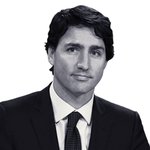
“Interdependence is an overwhelming fact of modern life. No matter where we live, our fortunes are, in one way or another, tied together. So too are the challenges we face.”
Jonathan Fried, Trudeau’s personal representative, or “sherpa,” for the G20, spoke to me from Ottawa as preparations for Argentina are in full swing. Is there a danger, from his perspective, I asked, that the G20 could be stretched too thin?
Fried says that Canada and many other G20 members would come at the question neither from the perspective that they only do finance, at the one extreme, nor from the point of view that they’re a mini-United Nations, at the other. Rather, they consider what “issues, subjects, events or crises are of such potential magnitude that, if we don’t deal with them, can affect economic prospects.”
Empirical data from the G7, Kirton says, shows that “if you have more commitments across all subjects, the average compliance at the summit tends to go up. So, the evidence says the more the merrier, if you care about compliance.”
“You don’t take every health issue and try and turn the G20 into a global lobby for universal health care, necessarily,” Fried said. “But you do say, do we have systems that provide access to health care adequate to prevent and respond to potential spread of serious disease?
“All of which is to say, in my view, the G20 has a good record of success, both in the finance track and then [in] bringing in issues that can affect economic prospects.”
Julia Kulik, director of research for the G20 Research Group, is a bit more circumspect when asked to rate the summit’s performance over the past decade in making globalization work for everyone.
The G20, she says, “performed well in the beginning, being responsive to the crisis; I don’t know if it’s performed as well in terms of closing this gap of inequality.
“I wouldn’t advocate for it to take a more narrow approach — it’s just that, I mean, we make commitments at the federal level, and then our provincial governments back out of federal policies on climate change reduction. We’re also up against one of the most powerful democracies that seems to have an increasing distrust in multilateral institutions. So is this going to be where those commitments are made? I don’t know.”
There’s no question that 2018 feels like a particularly fraught time for anyone who believes in the rules-based international order. There’s a sense that as countries adopt protectionist trade measures, technology advances at a dizzying pace, populations age and authoritarian governments become more prevalent, people are being left behind.
Trudeau says that despite global economic growth being at its strongest since 2011, not everyone has felt the benefits equally, and people are anxious, increasingly calling into question the benefits of globalization and the value of international cooperation. The global institutions that have formed, since the end of World War II, “the bedrock of our economic and social prosperity” and offered “unprecedented stability” are, Trudeau says, being called into question like never before.
After the 2008 crisis, “people began to look for scapegoats,” Martin said. “For the first time, people are challenging — Americans are challenging — some of the premises on which the G20 was built.”
Summers says that if he and Martin were in office today, he thinks their focus would be on a “cooperative globalization that worked for middle classes everywhere…We’d be more concerned with what people in Detroit and Düsseldorf thought than what people in Davos thought.”
“One of Prime Minister [Stephen] Harper’s expressions during the crisis was, I don’t know if I can get this exactly right, but the ‘lifeboat mentality’ — we’re all in this together,” Macklem recalled. “It was an urgent and immediate situation, and everybody appreciated that we had to work together to get out.
“We’ve lost that, 10 years on. And countries across the G20, I think, have gone on more divergent paths,” he said. “With the US looking increasingly inward, and frankly, being a disruptive force now in trying to undermine the effectiveness of multilateral organizations, it’s a difficult time for the G20, as well as other international organizations.”
For Martin, these international organizations are the best chance the world has of successfully dealing with the most pressing issues of today.
“You’re not going to fight climate change on your own, you’re not going to protect the oceans on your own, you’re not going to stop the spread of disease on your own,” he said. “Globalization is a fact of life, and the only question is, is the world going to cooperate to make globalization work. That, I believe, is going to depend on the success of the G20.”

This week, Martin will be watching the Argentina summit closely. Trudeau, who will be present, says that what comes out of informal meetings between G20 leaders can sometimes be just as important as the official declarations of the summit.
“It is critical that leaders come together at every possible opportunity to show the importance of collaboration, and to stand shoulder-to-shoulder in defence of our shared values and institutions,” he said. “We need to state aloud facts and principles that, not so long ago, we considered self-evident.”
Taking the Lead
On the southeastern edge of Buenos Aires sits the Villa 20 settlement, one of the most vulnerable neighbourhoods in the city. Not long ago, its main feature was an abandoned, inaccessible muddy field, sandwiched between a major avenue and densely packed, multi-storey square houses, rusting shells of cars off to the side. Today, neighbourhood children looking for a place to play can choose between a green Astroturf soccer field, a volleyball court and a park surrounded by a small, teal picket fence. A once-peeling white barrier wall is now covered with bright murals; saplings have been planted, supported in place by stacks of colourfully painted car tires.
Buenos Aires’s ministry for habitat and inclusion is responsible for this and various other facelifts undergone by low-income communities around the city. Officials work closely with local residents to promote active citizenship, offer sports and arts programming and, critically, provide education and jobs training.
The ministry’s undersecretary, Antonio Demarco, tells me his office is proud that Argentina is hosting the G20 and hopeful about what it will accomplish. But he doesn’t beat around the bush — far from preparing people in these poor communities for the jobs of the future, his team is focused on basic training for the jobs of today: literacy, language, computer skills. “Sometimes the future is far away, and we have to work for the present.”
A recent census revealed that the majority of people living in the city’s shantytowns lack proper sewage systems, running water and energy grids. For those most vulnerable members of society in Argentina and beyond — those whom the G20 is really meant to help — what can be expected from this week’s gathering?
Kirton would like to see the summit put its money where its mouth is: “We’re still living in a material world — to quote Madonna — and the G20 summits of late have really not been great global fundraisers.”
Martin points out that, aside from financial pledges, G20 countries can play a leadership role in supporting global initiatives that can then be brought to the United Nations or various other international fora.
Fried, Canada’s sherpa, says that the G20 can also make a difference domestically: “If you help countries run their finances well enough, then you increase what the treasury has at its disposal to give to the health minister and the education minister.
“That’s huge. And then you’re putting the responsibility not on some G20 directorate to look at every low-income neighbourhood, but every government to take that home and to do the right thing as a matter of domestic governance.”
Martin also believes that the G20, being a body that runs on consensus without an official secretariat, can be an example of an institution that does “not flinch if it doesn’t get total support.” The United States’ announcement of its intention to withdraw from the Paris accord, he said, was an important test for the group to pass.
For the G20 to be successful, both this week and going forward, the people intimately involved in its creation and its activities don’t see the need for anything as drastic as a significant restructuring; rather, they would like to see more continuity between summit priorities from year to year, and better implementation of the commitments that are agreed to.
The G20 has a “troika” arrangement, where the current, previous and next chair work together to ensure a flow through of ideas and projects from summit to summit. Nevertheless, “each host country wants to be able to say something dramatic [and] thinks that it has to bring forth a different agenda,” Martin said.
He adds that this doesn’t mean there shouldn’t be new items added to the summit agenda each year, but that if there’s been “a very strong” item brought at one meeting, it has to be dealt with at each summit until it has been achieved.
The G20 Research Group’s Kulik thinks that, beyond simply carrying ideas over from year to year, the G20 must push for better implementation of the ideas it commits to. She was excited by the Brisbane commitment in 2014 to narrow the gender gap in the workforce. But going into this year’s Argentina summit, she says, there’s been no formal self-reporting on the progress that has been made on this commitment, even though it’s been reaffirmed every year.
“It’s not enough to just say that you commit to those things,” Kulik said. “We need more than just platitudes at this one, especially when you’re bringing countries to the table that have poor records on protecting women’s rights and promoting gender equality. So, you claim that you reaffirm this commitment, but you have Trump at the table, you have India, you have Saudi Arabia…”
While many agree on the need for better continuity and implementation, what is less certain is what that would look like in practice.
“I think if we started creating a sort of institutional mechanism, we are going to bureaucratize the G20,” warned Pedro Villagra Delgado, Argentina’s G20 sherpa, in an interview. A proponent of the G20, which he credits as “one of the great Canadian inventions,” Villagra Delgado said there are “basically no rules to how you have to run the G20 or participate in the G20 — and I think that’s a very good thing.”
Fried would agree, noting that leaders, when they get together, want a “genuine conversation and exchange of views.” He’s also quick to argue that he doesn’t believe “everything gets dropped from previous years — it’s just that once it’s launched, the process continues without the same publicity or prominence or reporting.”
This speaks to the need for a better understanding, both from the journalists who cover the summits and from the public itself, of what exactly the G20 — for many people around the world, a kind of high-policy, nebulous, complicated instrument — actually does.
“Even people who study it regularly have trouble pinpointing that,” Kulik admitted. “A lot of people just view it as world leaders coming together, spending billions of dollars on security, a fake lake, a fancy gazebo in Muskoka…that’s all they see.
“People need to understand what their governments do for them, and what international institutions do for them,” she said. “And those international institutions have a responsibility to the public on that as well, it’s not just in the hands of the individual.”
When it comes to the Argentina summit, it’s clear Villagra Delgado is drawing heavily on his background as a diplomat. “What I have done personally as sherpa, and [how] we have conducted our presidency…has been to know the red lines of each of the members, the United States, China, European Union, South Africa, you name it,” he said. His hope is that if leaders are able to find some common ground this November on thorny issues such as climate change or trade, perhaps next year, when they meet again, it will be easier “to make a leap to further things.”
Martin learned from his father that the answers to the world’s most intractable problems are not to be found by going it alone. In Buenos Aires, the G20’s caballero underlines to me that — as I’d heard Villagra Delgado say that week during a meeting — it takes 20 to tango.
“People think that borders can keep problems out. But borders can’t keep climate change out. Borders could not keep the 2008 financial crisis out. Borders are not going to keep people who are living in countries that are subject to civil war, drought or misery out,” Martin said. “The only way this world is going to work is if we work together.
“I believe that the role of the G20 is to take the lead on this. It has done it on occasion, and I know it will rise to the occasion again.”
It seems like he’s optimistic, I venture.
“Yes, because I am,” he said. “If, together, your generation and my generation do the kinds of things that we’re talking about here, we’re going to open up a new world that you can’t believe.”
More from Paul Martin and Lawrence Summers
Author - Catherine Tsalikis
Editor - Allison Leonard
Editor - Eva Salinas
Editor - Lynn Schellenberg
Video Producer - Trevor Hunsberger
Designer - Abhilasha Dewan
Developer - Gabriel Tan-Chen
Developer - Mike Sage
Developer - Rebecca Anderson
Creative Direction - Som Tsoi
Source Images - Joseph Lavallee, Tim Hutchinson, Trevor Hunsberger, Flickr/ Republic of Korea, AP Photo/Evan Vucci, Flickr/G20 Argentina, Shutterstock/Art Babych and UN Photo.
Canada has long been a champion of multilateralism, and a dedicated member of multilateral forums such as the G7 and G20. As a middle power, Canada’s voice carries much further in a world where countries work together and share a common set of rules and principles. We are a country of 36 million people that shares a border with the world’s largest economy. We understand intimately — and value greatly — the importance of a rules-based international order, where might does not always mean right and countries of all sizes can thrive together, protected by global rules and standards. We strongly believe that the greatest issues we must collectively address today — climate change, shared economic growth, income inequality, gender equality, respect for human rights — must be done in collaboration, and with common solutions.
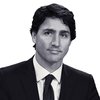
Canada and the world were lucky to have Paul Martin in the place he was in the late 1990s. He was a man who could have been on a golf course, on a yacht. And it’s fortunate that he was there, because with a lesser figure in place in Canada, the United States still would have wanted to have some kind of global grouping, but with Europe reluctant about anything that would dilute its influence, and with Japan preoccupied domestically with its financial crisis, I’m not sure the United States could have brought about a G20 without a major country as its partner. And so we were so fortunate to have Paul Martin and Canada, not just as a partner but as a kind of global conscious, pushing us forward. I’ll always be grateful that Paul was a finance minister at the same time that I was.

Right now, we are in real danger of leaving our kids a world that is less fair and more divided than the one we inherited from our parents. People are anxious, increasingly calling into question the benefits of globalization and the value of international cooperation. As global leaders, we have a responsibility to show the world how much more we can achieve together rather than in isolation. We share the urgent task of showing people that leaders of countries can unite and not just talk about change but affect it. The G20 — as the G7 was in Charlevoix — is a key opportunity to show our citizens, and the world, the necessity and strength of working together.
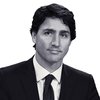
That would mean less emphasis on capital mobility for its own sake, and more on controlling money laundering, and above all, more on making sure that capital mobility and globalization didn’t become an excuse for highly profitable corporations to avoid taxes in all jurisdictions. We would be concerned about intellectual property for innovation but equally concerned about making sure that medicines and research results were available on fair and affordable terms to all. We would be concerned about making sure that disputes could be resolved in an expeditious way — not just the complaints of big companies, but also the complaints of workers who felt that they faced unfair competition. We would be concerned with not just the problems of large financial institutions, but with basic access to credit for citizens of the world everywhere.

They should meet longer, too. They spend longer flying to and from a summit than they spend there working — when they’re awake. That’s just not a good use of our leaders’ time. It does mean, quite apart from sleep deprivation, they simply to a large extent have to read the notes prepared by others, rather than be leaders. If you needed somebody to just read the notes, you could send your summer intern, with apologies to summer interns, right?

